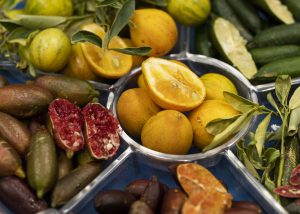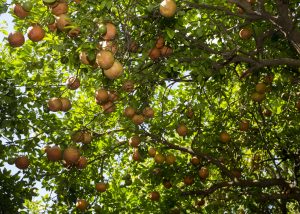
South Florida landscapes are filled with some of the most delicious citrus thanks to the subtropical climate of the region.
Varieties like sweet orange, grapefruit, mandarin, Meyer lemon, lime and kumquat are just some of those typically found across home landscapes. Growing and keeping them healthy requires care and a vigilant watch for pests and diseases.
On June 4, scientists at the University of Florida Institute of Food and Agricultural Sciences (UF/IFAS) invite you to a Zoom webinar hosted by UF/IFAS Extension Broward County.
Event Details:
Date: Tuesday, June 4
Time: 6:30 p.m. to 7:30 p.m.
Advance registration required: Please register here to receive your unique Zoom link for the event.

“This workshop is a must-attend for anyone who grows or wishes to grow any of the many citrus varieties in their home or on their property,” said Lorna Bravo, horticulture agent at UF/IFAS Extension Broward.
Citrus has played a pivotal role in shaping Florida’s history, impacting various domains such as agriculture, environment, nutrition, anthropology and the economy. However, the emergence of citrus greening, also known as Huanglongbing (HLB), poses significant challenges for home gardeners and urban residents who wish to cultivate citrus trees.
“At UF/IFAS Extension Broward County, we listen to and respond to calls and emails from urban residents as they share their ongoing concerns and challenges regarding growing citrus trees,” said Bravo.
Recognizing the urgency of finding sustainable solutions to coexist with citrus diseases and pests like citrus greening, UF/IFAS Extension invited Fernando Alferez, UF/IFAS assistant professor of horticultural sciences, to share the latest citrus research on effective strategies for managing greening and introducing new tree varieties in local backyards.
Alferez is a citrus horticulturist based at the Southwest Florida Research and Education Center (SWFREC) since February 2017. He previously researched systemic acquired resistance of citrus plants at the UF/IFAS Citrus Research and Education Center in Lake Alfred. His Ph.D. in plant biology from the University of Valencia focused on factors regulating fruit development, maturation and quality. At SWFREC, Alferez serves Florida’s citrus industry by characterizing novel varieties for processing and the fresh market, as well as addressing preharvest fruit drop under HLB pressure. He has authored several Extension documents on AskIFAS for growers and consumers related to citrus.
“South Florida landscapes are beautiful and can present unique challenges, our horticulture agents and Master Gardeners offer research-based assistance, information, and service,” said Bravo. “Our events bring the UF/IFAS research and science to Broward residents through a hands-on learning approach that is consumer friendly.”
##
By Lourdes Mederos, rodriguezl@ufl.edu
ABOUT UF/IFAS
The mission of the University of Florida Institute of Food and Agricultural Sciences (UF/IFAS) is to develop knowledge relevant to agricultural, human and natural resources and to make that knowledge available to sustain and enhance the quality of human life. With more than a dozen research facilities, 67 county Extension offices, and award-winning students and faculty in the UF College of Agricultural and Life Sciences, UF/IFAS brings science-based solutions to the state’s agricultural and natural resources industries, and all Florida residents.
WHY FOOD IS OUR MIDDLE NAME
Feeding a hungry world takes effort. Nearly everything we do comes back to food: from growing it and getting it to consumers, to conserving natural resources and supporting agricultural efforts. Explore all the reasons why at ifas.ufl.edu/food or follow #FoodIsOurMiddleName.
 0
0
